Related Research Articles

The Taming of the Shrew is a comedy by William Shakespeare, believed to have been written between 1590 and 1592. The play begins with a framing device, often referred to as the induction, in which a mischievous nobleman tricks a drunken tinker named Christopher Sly into believing he is actually a nobleman himself. The nobleman then has the play performed for Sly's diversion.

John Paul Corigliano is an American composer of contemporary classical music. With over 100 compositions, he has won accolades including a Pulitzer Prize, five Grammy Awards, Grawemeyer Award for Music Composition, and an Academy Award.

Phyllis Curtin was an American soprano and academic teacher who had an active career in operas and concerts from the early 1950s through the 1980s. She is known for her creation of roles in operas by Carlisle Floyd, such as the title role in Susannah and Catherine Earnshaw in Wuthering Heights. She was a dedicated song recitalist, who retired from singing in 1984. She was named Boston University's Dean Emerita, College of Fine Arts in 1991.
Vittorio Giannini was an American neoromantic composer of operas, songs, symphonies, and band works.
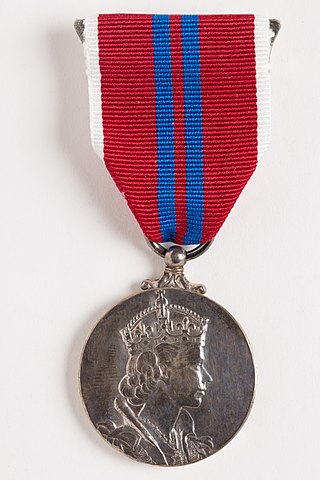
The Queen Elizabeth II Coronation Medal is a commemorative medal instituted to celebrate the coronation of Queen Elizabeth II on 2 June 1953.
American Indian opera is a subgenre of music of the United States. It began with composer Gertrude Bonnin (1876-1938), also known as Zitkala-Sa. Bonnin drew from her Yankton Dakota heritage for both the libretto and songs for the opera The Sun Dance. This full-scale opera was composed with William F. Hanson, an American composer and teacher at Brigham Young University in Utah.
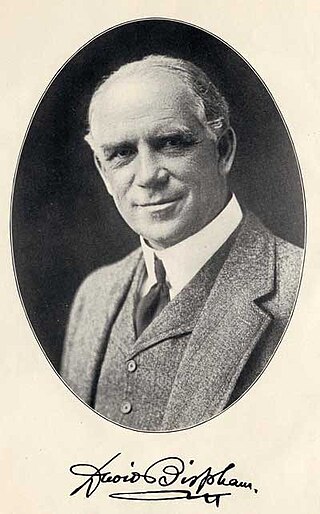
David Scull Bispham was an American operatic baritone.
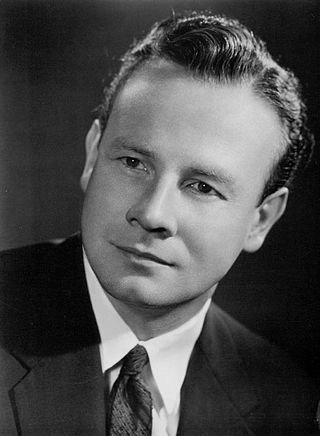
John Alexander was an American operatic tenor who had a substantial career during the 1950s through the 1980s. He had a longstanding relationship with the Metropolitan Opera in New York City, singing with that company every year between 1961 and 1987 for a total of 379 performances. He also periodically performed at the New York City Opera during his career and was a frequent presence at the Philadelphia Lyric Opera Company during the late 1950s and 1960s. Although he spent most of his career in New York City, Alexander occasionally traveled to perform as a guest artist with many of the world's leading opera houses, both in the United States and Europe. He was also an active concert singer throughout his career.

Ernest Bretaigne Windust was a United States–based, French-born theater, film and television director.
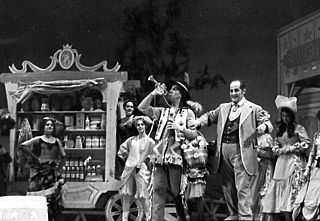
Andrew Foldi was a Hungarian-American bass baritone and educator whose singing career spanned four decades.
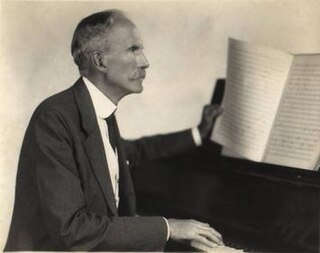
Ernest Trow Carter was an organist and composer who won the Bispham Award.
The American Opera Company was the name of six different opera companies active in the United States. The first company was founded in New York City in February 1886, but lasted only one season. The second company grew out of the Eastman School of Music in Rochester, New York, and was active from 1924 up until 1930, when it went bankrupt following the Wall Street crash of 1929. The third company, located in Trenton, New Jersey, was active in 1937 only. The fourth company was actively performing in Philadelphia from 1946 through 1950.
The McCormick family of Chicago and Virginia is an American family of Scottish and Scotch-Irish descent that attained prominence and fortune starting with the invention of the McCormick Reaper, a machine that revolutionized agriculture and established the modern grain trade by beginning the mechanization of the harvesting of grain. Through the McCormick Harvesting Machine Company and later, the International Harvester Company and other investments, the McCormicks became one of the wealthiest families in America. The name became ubiquitous in agriculture starting in the 19th century and the press dubbed the McCormicks the "Reaper Kings". Later generations expanded into media and publishing, finance, and real estate. Various family members were well known as civic leaders. The family is Presbyterian.
Mark Bucci was an American composer, lyricist, and dramatist. Influenced by Giacomo Puccini, his work is composed in a contemporary yet lyrical style, which frequently employs marked rhythms and memorable harmonies and melodies.
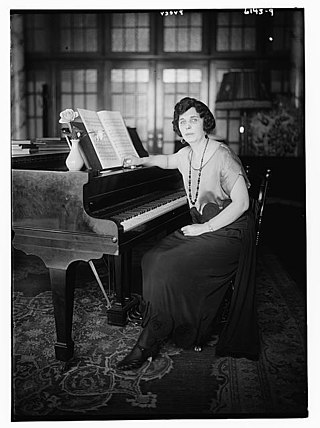
Eleanor Everest Freer was an American composer and philanthropist.
Frank Porretta Jr. was an American tenor who had an active career performing in operas, musicals, and concerts from 1952 through 1971. He had a particularly fruitful relationship with the New York City Opera from 1956 to 1970 where he sang a highly diverse repertoire; including roles in new operas by composers Norman Dello Joio, Carlisle Floyd, Vittorio Giannini, and Robert Ward. For the NBC Opera Theatre he portrayed The Astronaut in the world premiere of Gian Carlo Menotti's Labyrinth.
The Taming of the Shrew is an opera in three acts by composer Vittorio Giannini. The work uses an English language libretto by Dorothy Fee and the composer which is based on William Shakespeare's play of the same name. The opera premiered at the Cincinnati Music Hall on January 31, 1953 in a concert performance starring Dorothy Short as Katharina, Robert Kircher as Petruchio, the Cincinnati Symphony Orchestra, and conductor Thor Johnson. Considered Giannini's most popular work, it was one of three finalists named for the Pulitzer Prize for Music in 1953.
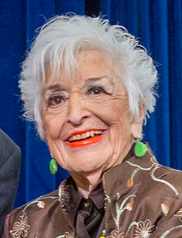
Margaret Joan Giannini was an American physician and a specialist in assistive technology and rehabilitation. She was the first director of the National Institute of Disability Rehabilitation Research (NIDRR).
Clarence Loomis, an American composer, pianist, and teacher, was born in Sioux Falls, South Dakota.
References
- ↑ MSS 40 The Ernest Trow Carter Papers in the Irving S. Gilmore Music Library of Yale University
- David Ewen, Encyclopedia of the Opera: New Enlarged Edition. New York; Hill and Wang, 1963.
- List of winners, cited on Opera-L